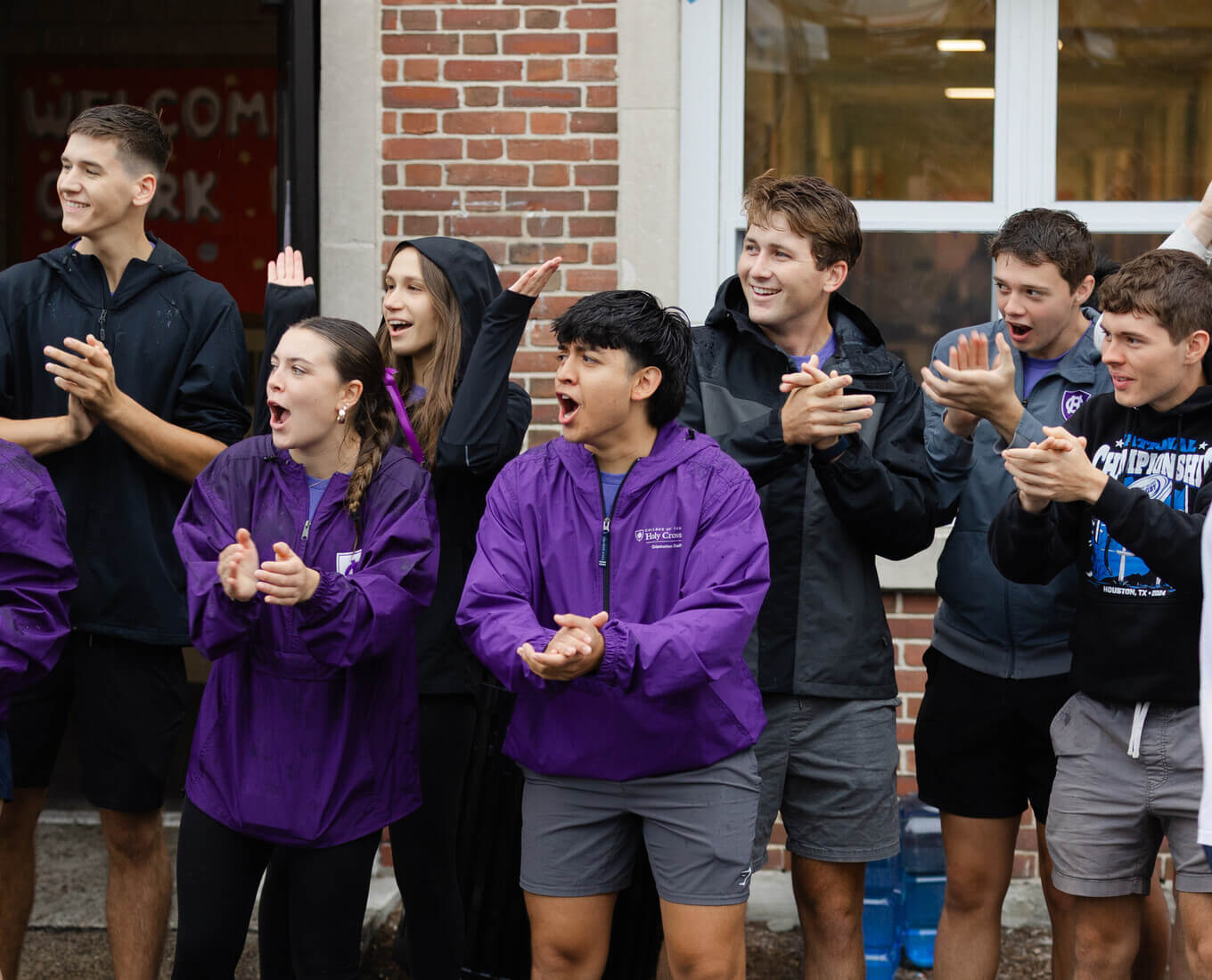
Brian Regan ’10 says that talking about his Jesuit education is easier said than done because it is difficult to step back and objectively critique something that is “so intertwined” with every aspect of his life.
Nevertheless, that’s exactly what Regan tried to do at 7:30 p.m. on Sept. 22 as part of a slate of events celebrating Jesuit Heritage Week at the College of the Holy Cross. The event, titled “Men and Women for Others: What Jesuit Education Means to Me,” took place in the Rehm Library and featured a panel of Holy Cross students exploring their personal experiences with Jesuit education. Other panelists included Becky Krier ’09, Brady Howell ’09, and Dave Floyd ’09.
Each student presented a short reflection describing his or her experiences with Jesuit instruction. In their talks, the panelists paid particular attention to the aspects of the Jesuit tradition that resonate with them most.
Regan, from Garden City, N.Y., managed to put together a reflection that drew from where his Jesuit education began: the halls of Regis High School in Manhattan. “Everything about the Jesuit philosophy made sense at Regis,” he says. “The idea of striving for more did not leave when we left the classroom; it was how we were expected to live.”
He also talked about the unique sense of community that he found throughout his time at a competitive Jesuit institution.
“When you get a group of intelligent people together, the environment can be cutthroat,” he says. “But at Regis, everyone was working together, pushing each other to excel.”
The solidarity of the Jesuit tradition led Regan to Mount St. James following his graduation from Regis in 2006, where he has found the same sense of community.
“In college it’s different because it’s more specialized, but people from different majors know each other and are willing to help each other out. Just about everybody here takes calculus, and there’s always that one person on the hall who’s willing to show us non-math people the ins and outs,” he laughs.
Regan’s positive experience with Jesuit education led him to change his major to religious studies from English. “Religious studies just became more important to me. It seemed a better use of the skills I had developed while studying English,” he says.
Though Regan has picked a field of study about which he is passionate, he believes the true difference is not in what he studies, but how he studies it. When talking of high school friends who opted not to continue their Jesuit education, he observes, “It’s easy to sense that there’s a difference in how things work as far as graduating and getting good grades. They just seem more geared toward quantifiable success, not about the formation of a person.”
While Regan admits that Jesuit education is more challenging in some ways, he is glad it is the path he has chosen.
“Quantifiable success for its own sake is not something of value, in my opinion,” he says. “I’ve learned more from my mistakes than my successes, and I think that’s just life. When things are difficult, you learn more.”
By Anthony Curotto ’09
Related Information:
• Jesuit Heritage Week
Educating the Whole Person
Read Time
2 Minutes
